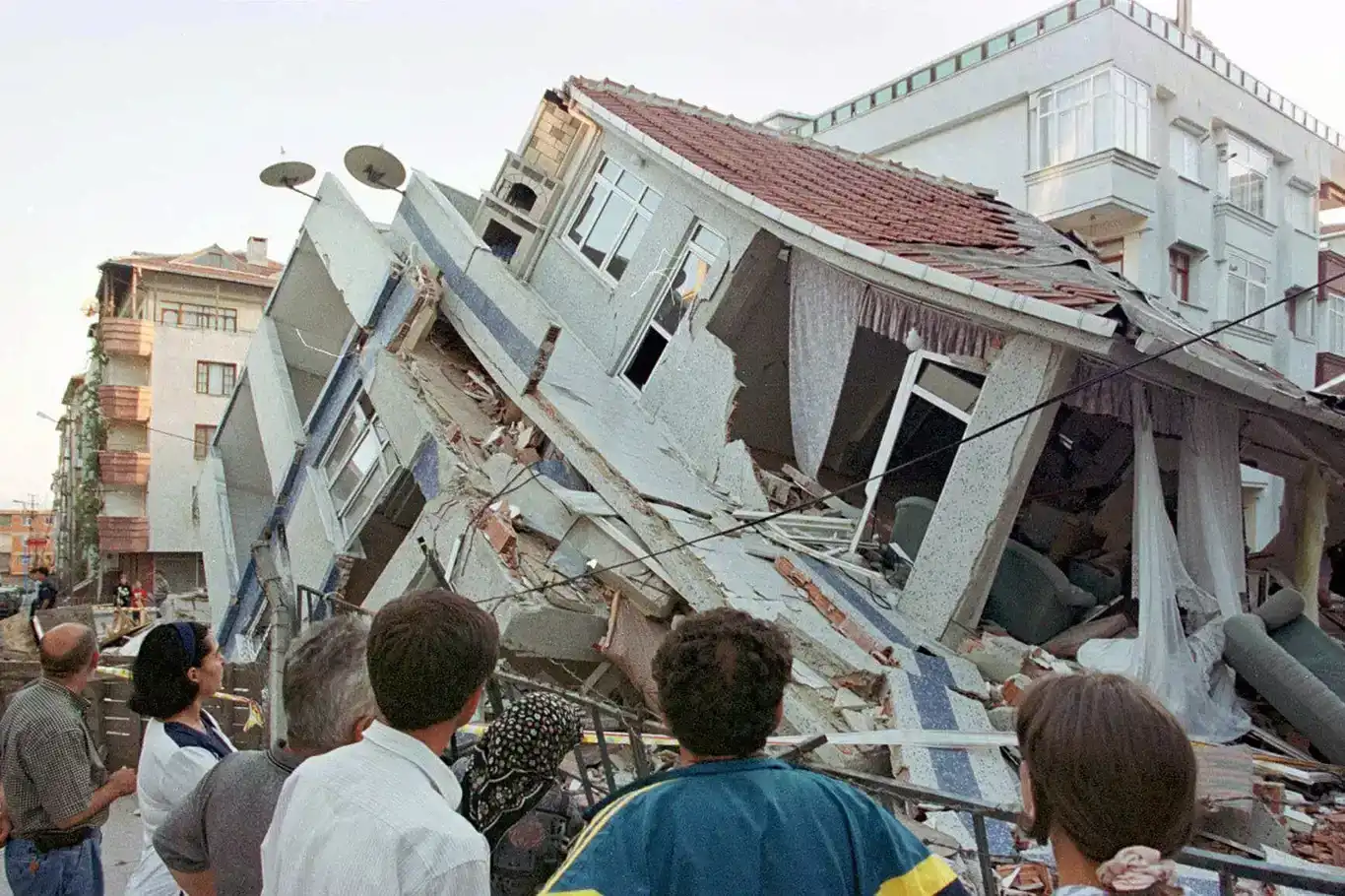Today marks 24th anniversary of Türkiye’s Marmara earthquake


It has been 24 years since the devastating Marmara earthquake struck northwestern Türkiye on August 17, 1999, at 03:01:40 local time.
This solemn anniversary marks the day when a powerful earthquake, measuring 7.6 on the moment magnitude scale, unleashed its fury, forever altering the lives of countless individuals.
The earthquake's impact was nothing short of catastrophic, claiming the lives of at least 17,000 people and leaving an indelible mark on the region. Lasting a mere 37 seconds, the seismic event wreaked havoc in northwestern Türkiye, particularly in the city of İzmit, which bore the brunt of the disaster.
The city of Istanbul, located about 70 kilometers (43 miles) away from the earthquake's epicenter, also experienced significant damage. The Avcılar district in the western part of Istanbul suffered immense destruction, highlighting the vulnerability of areas built on unstable ground composed of poorly consolidated Cenozoic sedimentary rocks.
The earthquake's impact was exacerbated by its occurrence in an industrialized and densely populated region. Key infrastructure, including oil refineries, automotive plants, and military installations such as the Turkish navy headquarters and arsenal in Gölcük, incurred substantial damage. The disaster sparked a tragic fire at the Tüpraş petroleum refinery, which proved difficult to control due to water pipeline breakages caused by the quake.
In the aftermath, the toll of devastation emerged with staggering numbers. An official estimate placed the death toll at 17,127 and injuries at 43,959. However, reports suggest that the actual figures might have been higher, with an estimated 45,000 lives lost and a similar number left injured. The earthquake left approximately 20,000 buildings collapsed and 120,000 poorly engineered houses irreparably damaged, rendering a quarter of a million people homeless.
Tragedy rippled beyond the land as a tsunami, generated by the seismic upheaval, struck the Sea of Marmara, claiming an additional 155 lives.
The response to the catastrophe was a testament to human solidarity. International aid and rescue teams rallied within hours, pouring their efforts into searching for survivors and providing assistance to the wounded and displaced. Non-governmental organizations, the Red Crescent, and local search and rescue entities collaborated to deliver aid to those in need.
As Turkey commemorates the 23rd anniversary of the Marmara earthquake, the memory of the lives lost and the resilience of those who survived stand as a solemn reminder of the enduring impact of natural disasters and the unity that emerges in their wake. (ILKHA)
LEGAL WARNING: All rights of the published news, photos and videos are reserved by İlke Haber Ajansı Basın Yayın San. Trade A.Ş. Under no circumstances can all or part of the news, photos and videos be used without a written contract or subscription.
It has been thirty-two years since the village of Başbağlar, nestled in the mountainous region of Erzincan, Türkiye, was thrown into the depths of unimaginable horror.
As the world marks the 100th anniversary of the execution of Sheikh Said of Palu and his 47 companions, Muslims across the globe are gathering to honor a defining moment in Islamic resistance history.
The Hijrah—the historic migration of Prophet Muhammad (peace be upon him) from Mecca to Madinah in 622 CE—stands as a luminous milestone in Islamic history, igniting the flame of hope in the hearts of early Muslims and serving as an enduring example for all generations of believers.
Türkiye today marks the 63rd anniversary of the May 27, 1960 military coup—a day many regard as a deep betrayal of democracy, justice, and the national will.